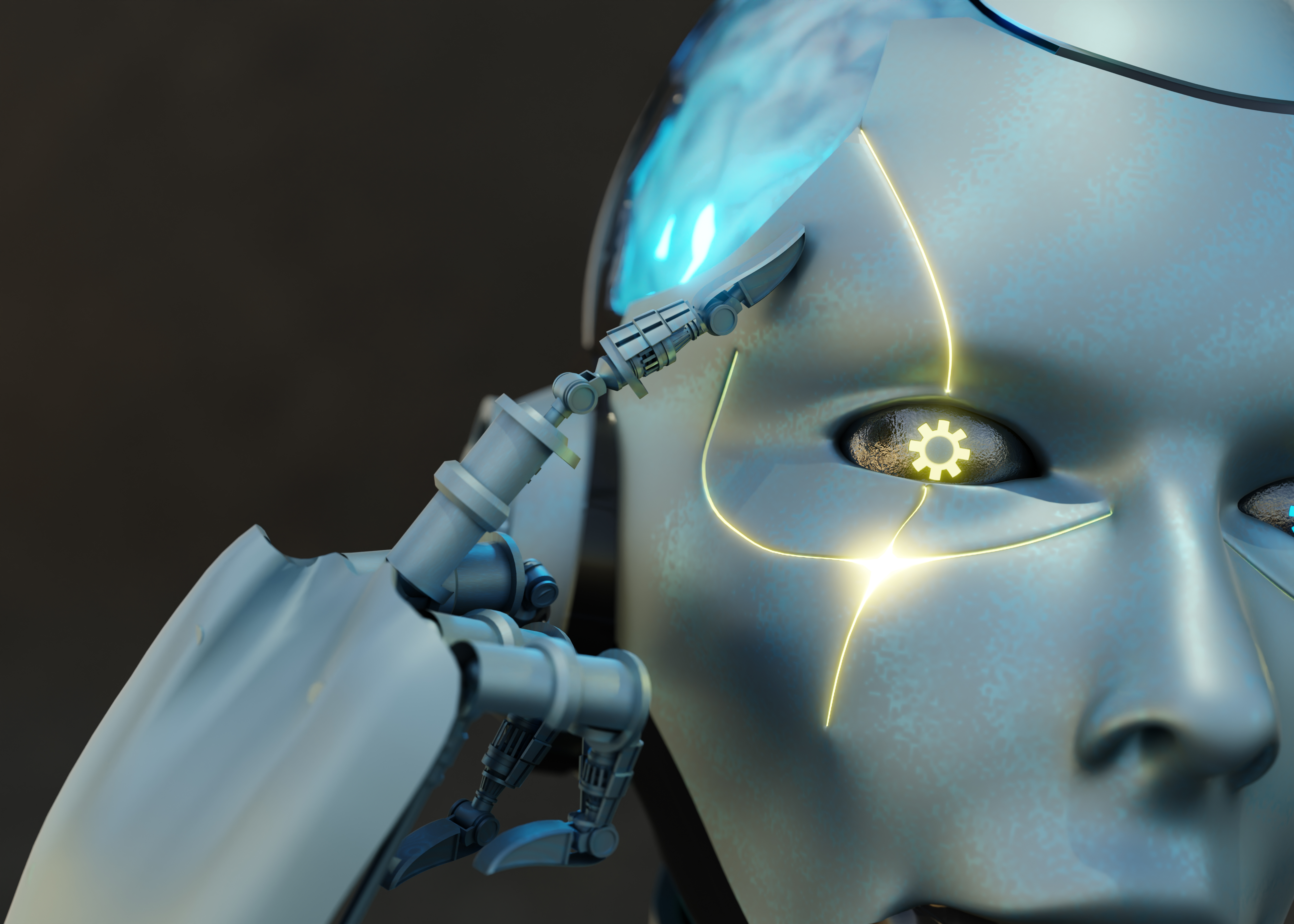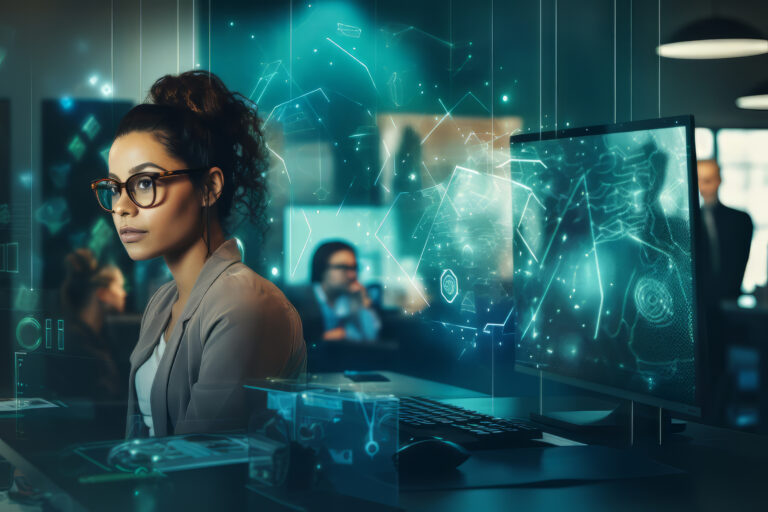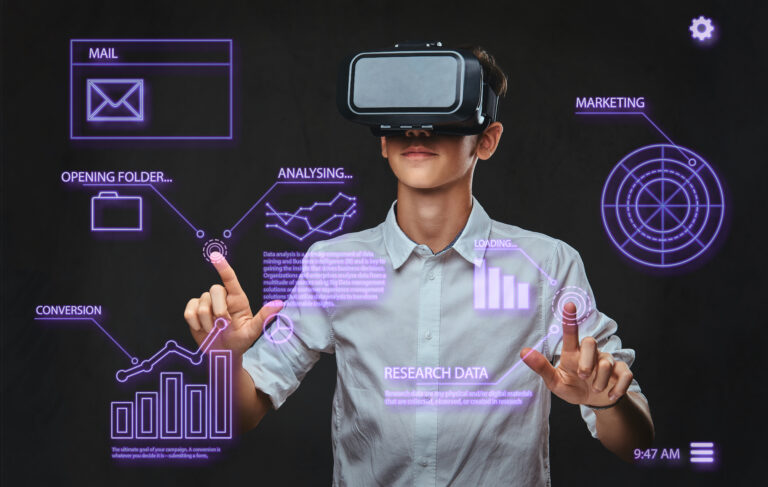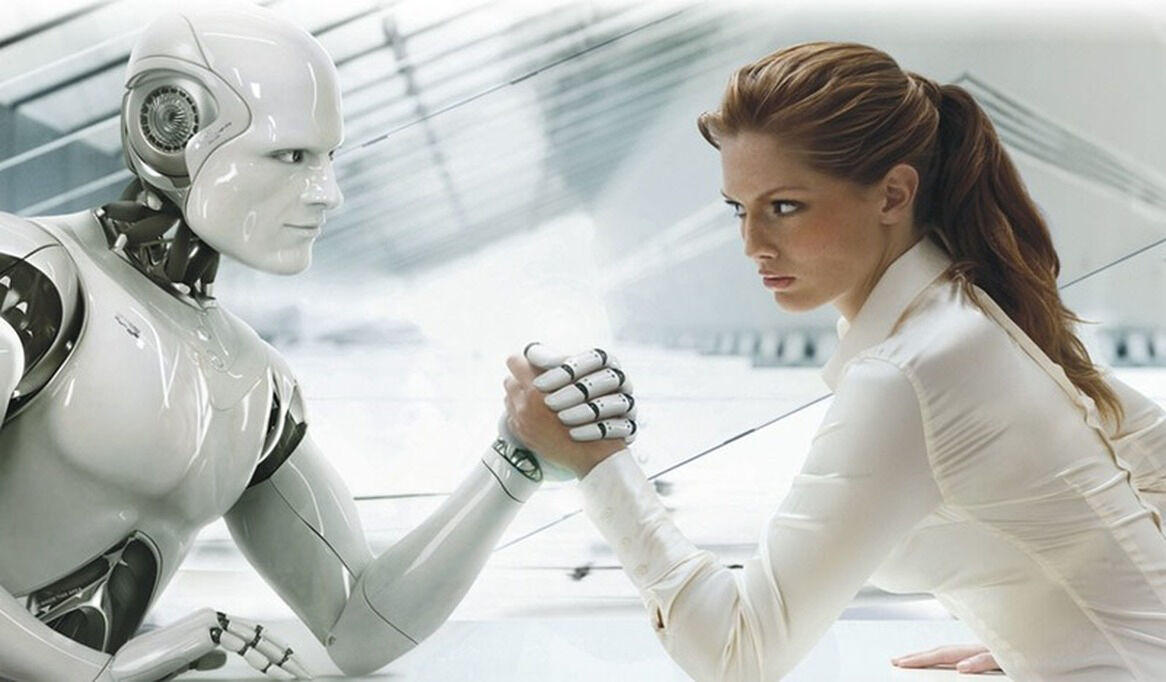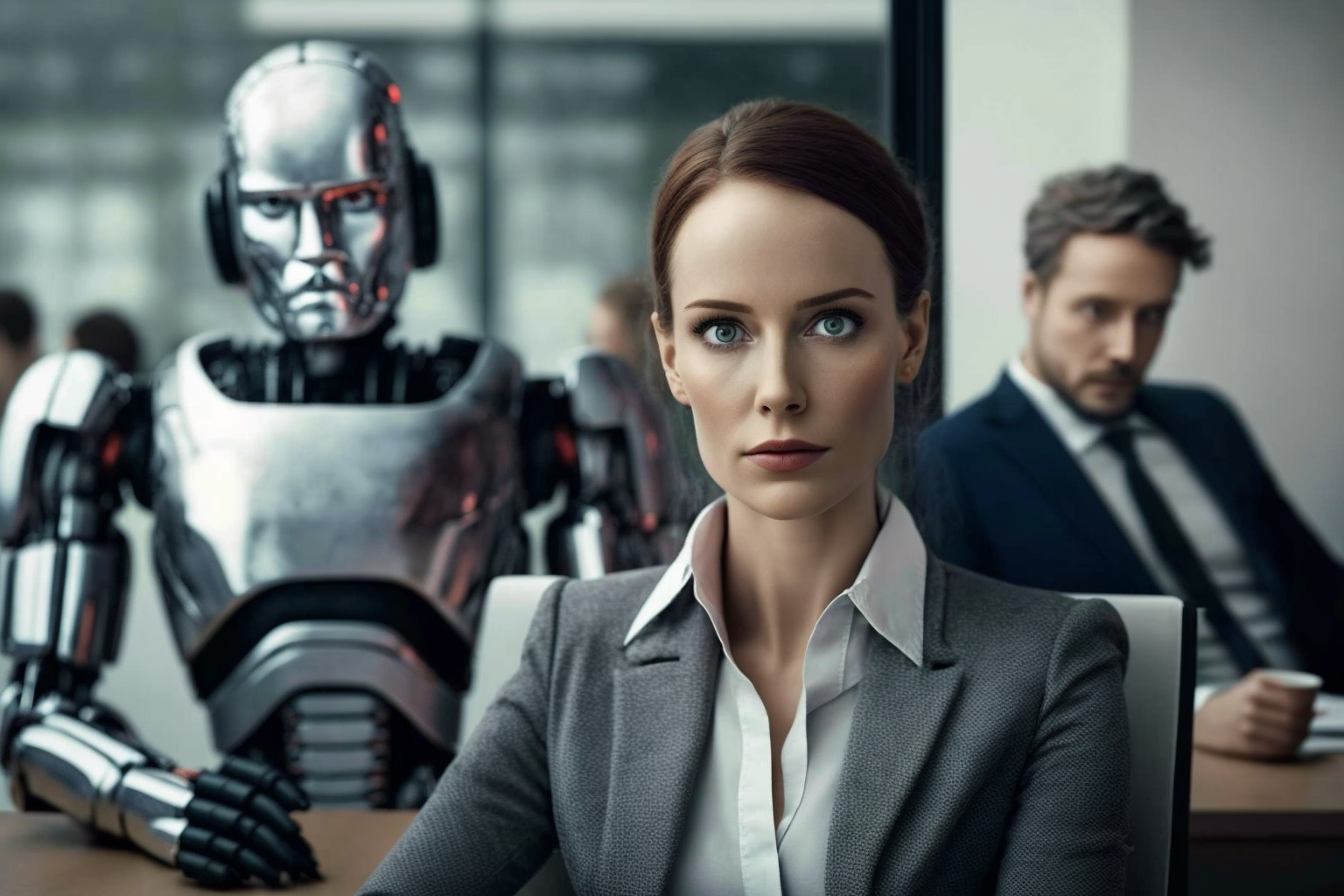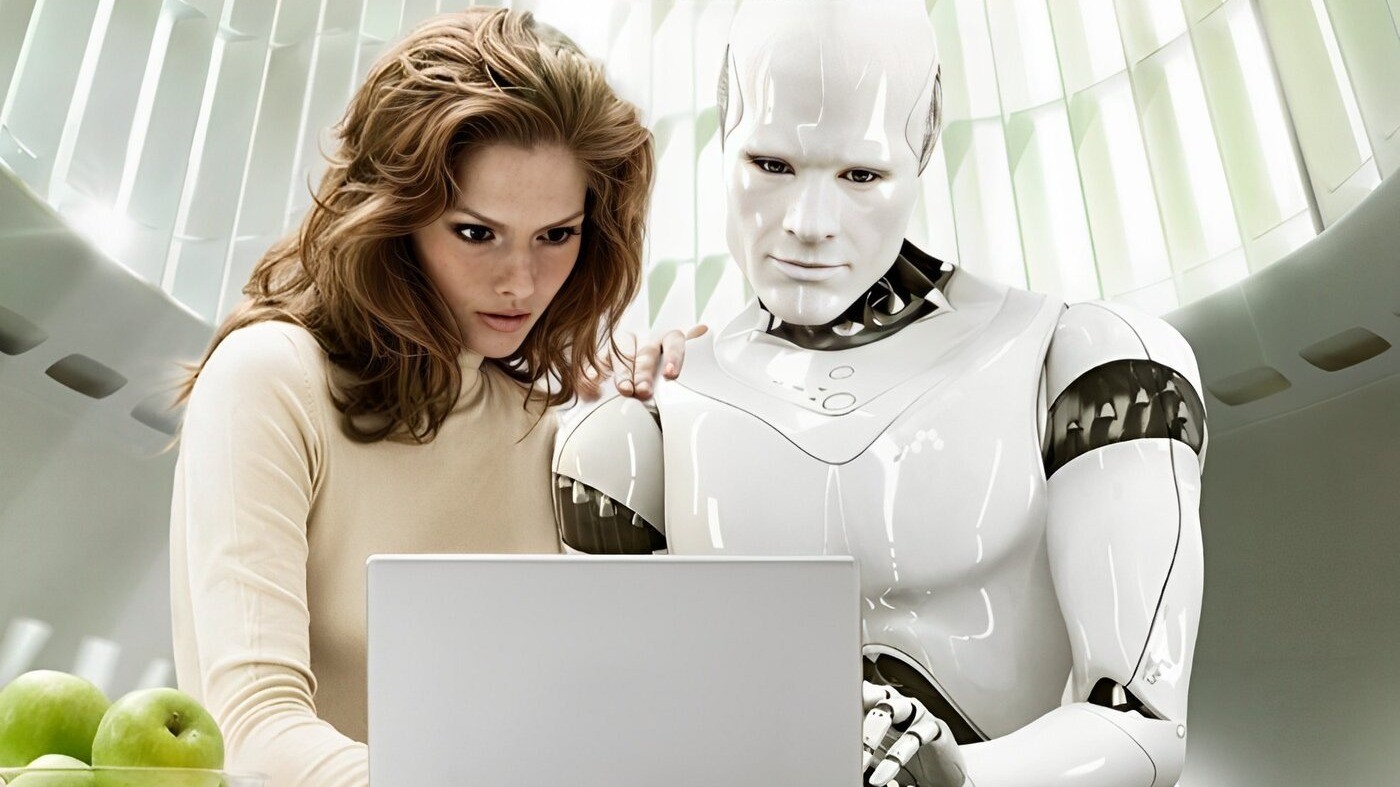Over the past few decades, Artificial Intelligence (AI) has gone from being a theme found in the pages of science fiction novels and on the silver screen to a technology that is radically transforming the way we live, work, and interact with each other. Today, we’ll discuss this fascinating journey—from fiction to revolution—and explore how AI is reshaping the modern world, creating opportunities, challenges, and a new era of innovation.
1. The Origin of Fiction: When AI Was Just Imagination
The Fascination of Science Fiction
Since the dawn of literature, writers and filmmakers have imagined a future in which thinking machines and intelligent robots coexist alongside humans. Works such as Isaac Asimov’s “I, Robot,” Arthur C. Clarke’s “2001: A Space Odyssey,” and films such as “Blade Runner” and “The Matrix” have painted intriguing—and sometimes terrifying—pictures of a future dominated by machines.
These narratives have sparked both fascination and fear of the unknown, questioning the boundaries between man and machine and inspiring generations to think about what it means to be intelligent.
First Steps in the Real World
While the idea of intelligent machines was long a figment of the imagination, technological advancements and the development of computers in the 1950s and 1960s began to turn this vision into reality. Pioneers like Alan Turing laid the foundations for AI , as researchers worked on programs that could play chess, solve math problems, and even mimic human language.
- The Turing Test: Proposed by Alan Turing, this test was a landmark in determining whether a machine could exhibit intelligent behavior equivalent to that of a human being.
- Early Algorithms and Neural Networks: Early experiments with artificial neural networks and learning algorithms paved the way for the technologies we know today.
2. The AI Revolution: From Theory to Practice
Technological Evolution
Over the years, advances in processing power , data storage , and machine learning techniques have driven the evolution of AI to unimaginable levels. What was once restricted to research labs has now become a practical application that permeates almost every sector of society.
- Machine Learning and Deep Learning: Techniques that allow systems to learn from data, evolving autonomously and improving their results.
- Big Data: Access to large volumes of information has made it possible to create algorithms that can identify patterns and predict behaviors with extraordinary accuracy.
- Cloud Computing: The expansion of cloud services has made AI more accessible, allowing small businesses and startups to utilize advanced technologies without major infrastructure investments.
Practical Applications and Transformative Impacts
The AI revolution hasn’t just remained theoretical – it’s already revolutionizing the way businesses operate and how we live our daily lives. Let’s look at some examples:
Health
- Medical Diagnosis: AI systems are helping to analyze scan images, detect patterns and diagnose diseases with an accuracy that often surpasses that of human doctors.
- Personalized Medicine: The analysis of genetic data and medical histories allows the creation of personalized treatments, improving effectiveness and reducing side effects.
Finances
- Predictive Analytics: Machine learning algorithms analyze market trends and help predict economic movements, assisting investors and financial institutions.
- Fraud Detection: Intelligent systems monitor transactions in real time, identifying suspicious behavior and preventing fraud quickly and efficiently.
Industry and Manufacturing
- Process Automation: Robots and automated systems are transforming production lines, increasing efficiency and reducing errors.
- Predictive Maintenance: Through data analysis, it is possible to predict failures in machines and equipment, avoiding unexpected shutdowns and optimizing production.
Education and Research
- Adaptive Platforms: AI systems personalize learning according to the needs of each student, promoting more effective and inclusive teaching.
- Research and Development: Data analysis tools accelerate scientific discovery, from new drugs to advances in materials and renewable energy.
3. Implications of AI in the Modern World
Unprecedented Opportunities
The AI revolution brings with it a range of opportunities that are changing the dynamics of business and society:
- Increased Productivity: Automation of repetitive tasks and accurate data analysis allow companies and professionals to focus efforts on strategic and creative activities.
- Creating New Markets: The integration of AI is giving rise to new industries and business models, opening doors for entrepreneurs and innovators.
- Improved Quality of Life: Smart solutions can optimize urban mobility, improve public safety and even contribute to environmental sustainability, creating smarter and more efficient cities.
Challenges and Risks
However, this transformation also brings challenges that need to be managed responsibly:
- Technological Unemployment: Automation can lead to the replacement of functions that depend on repetitive tasks, requiring continuous requalification of professionals.
- Ethical Issues: The transparency of algorithms, data privacy and biases present in AI systems are topics that require regulation and ethical debate.
- Inequality in Access: The disparity between those who have access to new technologies and those who do not can widen social inequalities, requiring public policies that promote digital inclusion.
4. The Future: Coexistence between Humans and Machines
A New Partnership
Rather than seeing AI as a threat that will replace humans, the future points to a collaboration between humans and machines . This synergy can bring out the best in each side:
- Complementarity: While algorithms process data and perform calculations quickly and accurately, humans bring creativity , empathy , and ethical judgment .
- Collaborative Innovation: The union of human intelligence with the processing capacity of AI can generate innovative solutions to complex problems, from advances in health to improvements in education and public management.
- Requalification and Training: The job market will need to adapt, investing in education and training that prepare professionals to work together with new technologies.
Ethical and Regulatory Challenges
For the coexistence between AI and humans to be beneficial for the whole society, it is essential to face ethical challenges and develop appropriate regulations:
- Data Privacy and Security: Robust data protection policies are essential to ensure that personal information is used responsibly and securely.
- Transparency of Algorithms: It is important that AI decision processes are auditable and understandable, to avoid bias and ensure that the choices made by automated systems are fair.
- Digital Inclusion: Governments and businesses need to work together to democratize access to technology, ensuring that the benefits of the AI revolution are shared across society.
5. Lessons from Fiction for the Real World
Inspiration and Warning
Science fiction not only inspired the creation of modern AI , but also serves as a warning of the potential dangers of an uncontrolled future. Films and books that depict dystopian scenarios – such as machine domination or the loss of human autonomy – remind us of the importance of developing technologies responsibly and ethically.
- Inspiring Examples:
- “2001: A Space Odyssey” made us reflect on machine intelligence and the evolution of consciousness.
- “Blade Runner” questions identity and the boundaries between the human and the artificial.
- “Matrix” warns us about the possibility of a future where reality can be manipulated by automated systems.
From Fiction to Revolution
Today, AI is no longer just a feature of fantasy stories – it is a powerful and practical tool that is transforming our daily lives. Learning from fiction can help us build a future where technology is used to improve people’s lives, without compromising ethics or freedom.
6. How to Prepare for the AI Revolution
To make the most of the opportunities that Artificial Intelligence offers, it is essential that individuals, companies and governments prepare for this transformation.
Investment in Education and Training
- Courses and Certifications: Invest in training on machine learning , data science , and other AI- related areas . Continuous education is key to staying relevant in an ever-evolving market.
- Workshops and Events: Attend technology conferences, seminars and forums. Sharing experiences and networking with industry professionals can open up new opportunities and inspire innovation.
Process and Business Adaptation
- Task Automation: Integrate AI solutions into your internal processes to increase efficiency and reduce costs. Business Intelligence and analytics tools can transform raw data into valuable insights.
- Constant Innovation: Always be aware of new technological trends and look for ways to apply AI to solve real problems in your business or community.
Human Skills Development
- Creativity and Empathy: As AI systems perform repetitive tasks and complex analyses, skills that are uniquely human—such as creativity , empathy , and critical thinking —become increasingly valuable.
- Emotional Intelligence: Develop the ability to understand and manage emotions, both your own and those of others, to create collaborative and innovative environments.
7. Conclusion: The Future is in Your Hands
The journey of Artificial Intelligence – which began as a science fiction concept and has evolved into a real revolution – is already redefining every aspect of the modern world. From the way we make decisions to the way we interact and work, AI is making an indelible mark.
The message is clear: it’s not about competing with technology, but about learning to live with it and collaborate with it. The future belongs to those who prepare themselves, invest in knowledge, and develop both technical and human skills. By understanding and embracing the AI revolution , you will not only be ready for the challenges ahead, but you will also be able to seize unprecedented opportunities for growth and innovation.
The world is changing – and the way you think, work and live needs to change too. If you still see AI as just the stuff of fiction, it’s time to update your perspective. Embrace the revolution, empower yourself and actively participate in the transformation that is already happening around you.
Recap of Key Points:
- From Fiction to Reality: Artificial Intelligence has gone from being a concept imagined in works of fiction to a revolutionary technology that is present in all sectors of society.
- Technological Evolution: Advances in machine learning , deep learning and big data have driven the development of AI , allowing it to overcome human limitations in speed and accuracy.
- Profound Impacts: From healthcare and finance to education and security, AI is transforming the way we live and operate, creating opportunities as well as ethical and societal challenges.
- Human-Machine Collaboration: The future is not a competition between humans and machines, but a partnership in which each complements the other’s skills.
- Preparation and Training: Investing in education and developing unique human skills is essential to seize the opportunities and mitigate the risks brought by the AI revolution .
A Call to Action
The future has already begun, and the Artificial Intelligence revolution is irreversibly shaping the modern world. If you want to be part of this transformation and not be left behind, start investing in knowledge, training and innovation today.
- Educate yourself: Seek out courses, training, and certifications in AI- related areas .
- Innovate: Experiment with new technologies and integrate AI solutions into your processes.
- Develop: Strengthen your human skills – creativity, empathy and critical thinking – to complement the power of algorithms.
The revolution is happening now, and each of us has the opportunity to turn challenges into opportunities and shape a future where human-machine collaboration is the foundation of progress.
Final Conclusion
“ From Fiction to Revolution: The Journey of Artificial Intelligence and Its Implications for the Modern World! ” is more than just a catchy title – it’s a reality unfolding before our eyes. AI has already surpassed the limits of imagination and is redefining the essence of what it means to be intelligent and innovative. It’s up to each of us to embrace this transformation, learn to live with new technologies and, above all, use Artificial Intelligence as a tool to build a better and more inclusive future.
Don’t wait for the revolution to pass without you being part of it. Knowledge is the key to transformation, and the opportunity to shape the future is in your hands. Invest, learn, and be ready to collaborate with AI to create a more efficient, ethical, and innovative world.
Share this article, discuss it with your peers, and inspire others to rethink their relationship with technology. The future belongs to those who prepare today – and the AI revolution has already begun!

